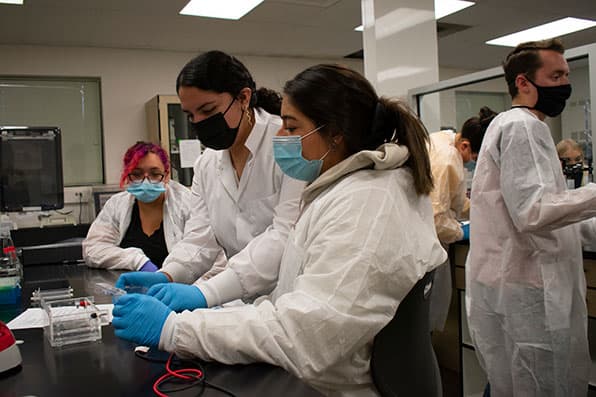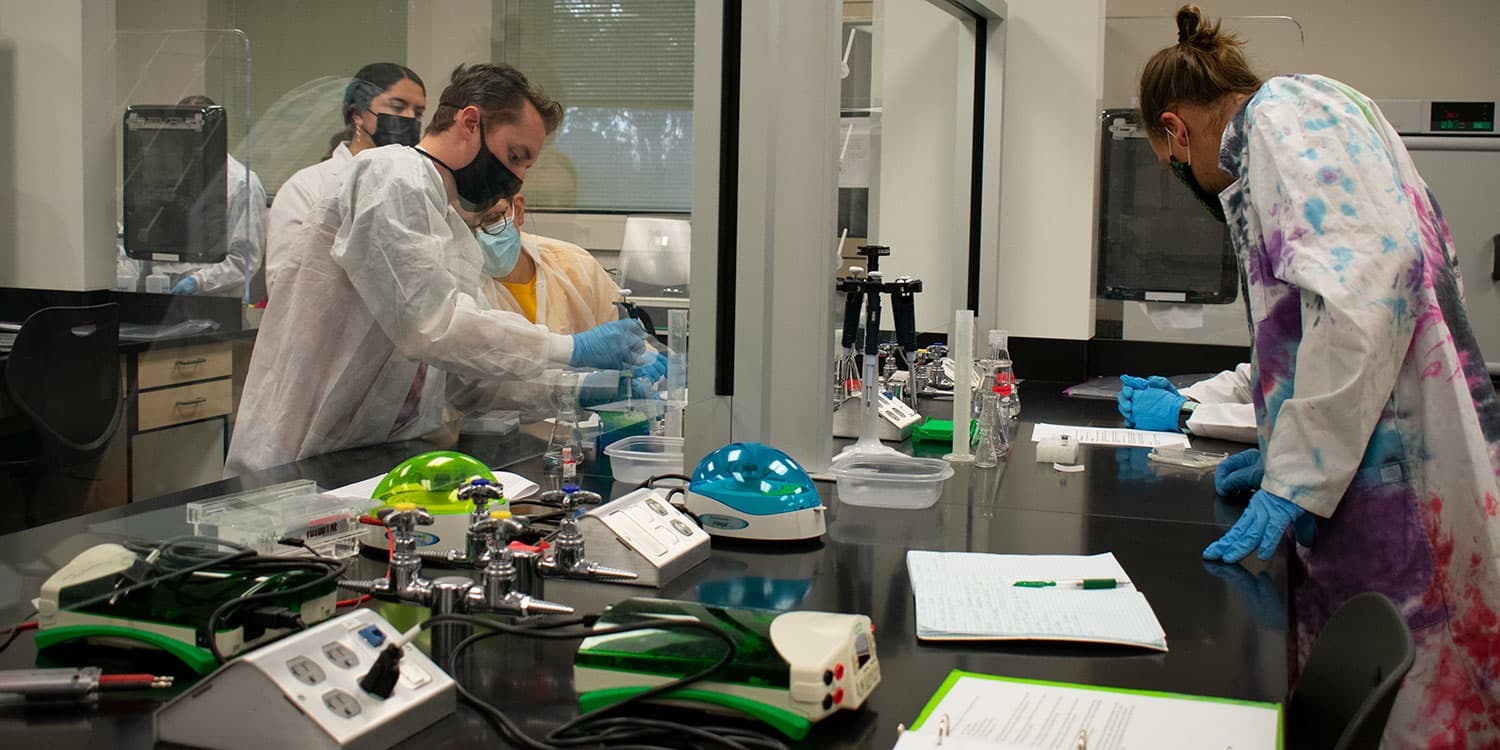Wearing a white lab coat, Marlene Garcia Araiza leans in to assist fellow Adams State biology majors during the genetics and cell biology laboratory. The students are working to identify different types of bacteria through an analysis of their genes. The sediment specimens were taken from water sources in the Sangre de Cristo and San Juan Mountain ranges as part of the National Science Foundation 1.8-million-dollar grant to study the effect of cattle grazing on mountain streams.
Araiza has benefited in other ways through the course-based undergraduate research experiences (CUREs) created by several of the Adams State STEM disciplines, as part of the NSF grant. Whether a geoscience, chemistry, biology, or mathematics major, CUREs enrich student academic courses and provide valuable experience for their post-graduate goals.
According to Benita Brink, Ph.D., professor of biology, the CURE program involves not just taking classes, the main target for the undergraduate, but also introducing a variety of opportunities for research.
With CUREs students serve as research assistants, who are mentored one-on-one by faculty members, and serve as teaching assistants in labs, helping classmates understand the material. “By the end of their second year, biology students have been exposed to four different research projects, all part of the greater grant study.”

Araiza helped collect the samples. “I had the opportunity to go out and collect sediment samples from the San Juan and Sangre de Cristo mountain ranges. I test-ran experiments alongside Dr. Brink to anticipate any challenges the laboratory may present and recognize what results should be expected.”
With Araiza’s previous knowledge from molecular biology class and reading scientific literature, her experimental experience as a research assistant set a swift transition to her role as a teaching assistant in the genetics and cell biology laboratory.
“As a teaching assistant, I have the opportunity to use and demonstrate my skills and expertise directly with students who are working on their CURE laboratory experiment,” Araiza said. “In addition, interactions between students and I are essential to share undergraduate experiences, have insight on the preparation of post-undergraduate careers, and build fundamental networks.”
Araiza will graduate in the spring of 2022 with a degree in cellular and molecular biology. “I aspire to become a bilingual family physician and return to my rural community in southeastern Colorado.”



